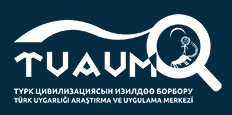Attitudes towards Turkish Culture among University Students Learning Turkish as a Foreign Language
Keywords:
Turkish culture, Attitude, Turkish as a foreign language, KyrgyzstanAbstract
Learning a new language is more than simply acquiring speaking skills or memorizing spelling rules. This
process also involves learning the culture of the language. Consequently, teaching a language is also an
important process of cultural transfer. This study aimed at determining the attitudes of university students
who learned Turkish as a foreign language towards Turkish culture and to compare these attitudes based
on various factors. The research employed a survey model, involving 391 students enrolled at KyrgyzTurkish Manas University. Data for the study were collected using the Attitude toward Turkish Culture
Scales, which comprised three independent measures: Cognitive Attitude, Affective Attitude, and
Behavioral Attitude. The collected data were evaluated using descriptive statistics, t-tests, and ANOVA
analyses. The results revealed that the participants held positive attitudes across all dimensions, with no
significant variations based on gender and being in Türkiye. However, participants' attitudes did vary
according to faculty and grade level, with students from the Tourism Faculty students and third-year
students having the most negative attitudes.

